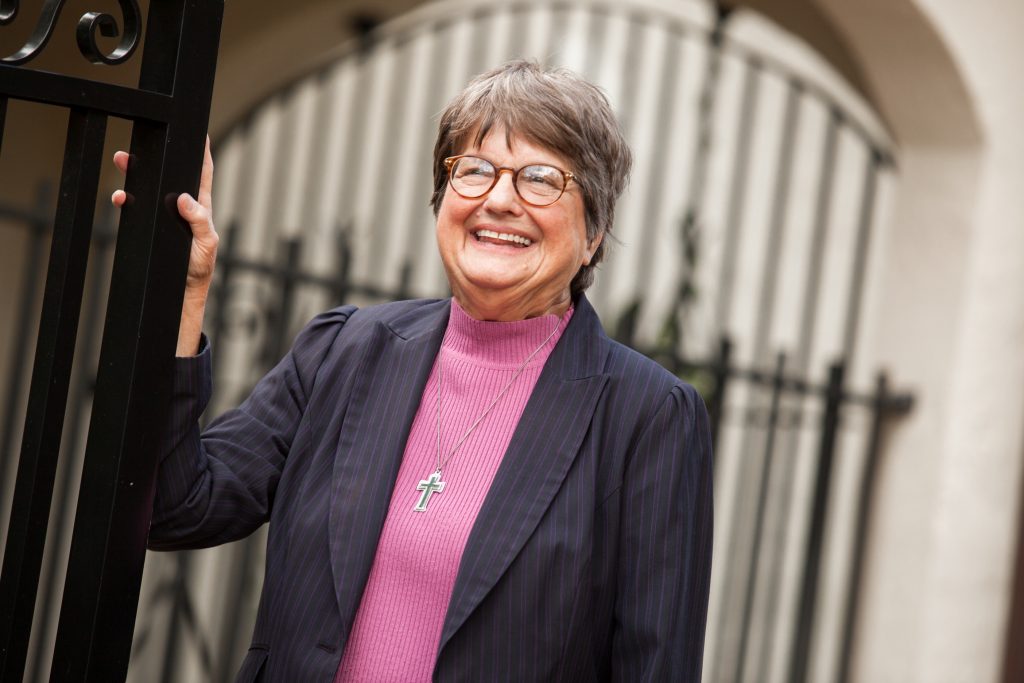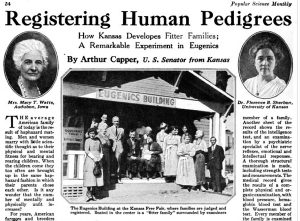Capital punishment has been used in the United States since its independence from the United Kingdom and is still applied in many of the 50 states today, with most executions in Texas, Virginia, Georgia, and Alabama. Over time, advocates have agreed that the death penalty is morally wrong and they argued that it should be considered unconstitutional, yet they have not achieved an end to capital punishment in either state legislatures or in the Supreme Court.1
During the 1700’s, advocates against the death penalty were able to restrict this punishment to those committed heinous crimes. In 1847, the anti-death penalty community helped capital punishment to be removed from Michigan. This was changed after World War I ended. In 1924, the state of Nevada decided to use lethal gas as an execution process. Then came the execution of Gee Jon for murder, which brought back death as the punishment for inflicting death or murder. 2 Anti-death penalty movements did not regain strength until Sister Helen Prejean helped to cast the debate in different terms.

Since 1981, Sister Helen Prejean has been a strong voice, and a most prominent one in the anti-death penalty community. Most humans and governments will not heed God’s commandment Thou Shall not Kill, but Sister Prejean became a strong advocate for that commandment. Beyond the religious imperative, Prejean explains how capital punishment is not useful in any way and is very dysfunctional. She has dedicated her life to God in the prison ministry in New Orleans. While Sister Prejean was living in the St. Thomas housing project, she began to write to a man who was convicted of killing two teenagers, Patrick Sonnier. Sonnier was to be executed by the electric chair in the State Prison of Louisiana.3
While Sister Prejean continuously visited Sonnier, she realized that executions were a huge issue, not only in Louisiana, but around the world. Sister Prejean wrote about her experiences in the book she wrote Dead Man Walking: An Eyewitness Account of the Death Penalty.4 She writes and explains how Louisiana’s prison system corrupts those who are involved with carrying out the execution. Especially security guards or “prison wardens” are not alert when working, along with working in that environment, is the feeling of being stressed. The stress can cause them to react in a certain ways toward prisoners and even accept the death penalty against them.5 Prejean mentions how many politicians support the death penalty mainly because they do not want to be mocked for being weak on crime by having an anti-death penalty stance.6
Helen Prejean during these times took the initiative to spend time with the victims’ families and understand why the death penalty is a win for them. The reason the victims’ families believe this is a pro for them is because it is “healing” and they receive “faux closure”. During those fifteen years, she continued to witness five other executions in Louisiana and to this day gives the younger generation information on the death penalty by writing and giving lectures.7
Prejean always took the anti-death penalty to the political system and even caused a few battles with some victories that were not big, but in that time it was still something to her. She did everything she could to gain justice, but the movement ultimately could not completely end capital punishment in the US.8

Prejean did her best to abolish the death penalty and she always gave many reasons for it, but with the issues coming against the fear of criminals and the devaluation of human lives, it is still unlikely to see its eradication in the US. Today, Prejean as the founder of “Survive” runs this victim’s advocacy group in New Orleans. In addition to that, she counsels inmates who are on death row and she provides support to the families of victims who were murdered.
Barry Scheck’s Innocence Project helps those who are innocent to increase awareness and prevent execution. Prejean has received an award from the Innocence Project of Florida for her outstanding work in advocating against the death penalty. “Sister Helen asked…”, during her speech, “…but what about the people advocating and fighting for them and the people working at innocence projects?”.9
No matter the outcome, fighting for what is morally right continues to drive advocates who stand against the death penalty. Prejean will continue to investigate flaws in the death penalty system which has led to many innocents being wrongly executed. Sister Prejean questions the justice system because of the discriminatory way that capital punishment is disproportionately applied to minorities. As she continues, there is still hope in Washington for the Death Penalty to be removed. Senator Miloscia warns against the killing of innocent people, he calls these “improper death penalty executions.”10 Although many still support the death penalty, change occurs when new elected officials like Governor Inslee pronounce themselves against capital punishment. As we learned from Sister Prejean, fighting for justice is a moral commandment.
- George Brauchler and Rich Orman, “Lies, Damn Lies, and Anti-Death Penalty Research,” 93, no. 3 (2005): 635-714. ↵
- McLaughlin, Jolie. “The Price of Justice: Interest-Convergence, Cost, and The Anti-Death Penalty Movement,” Northwestern University Law Review,108, no. 2 (2014): 675-710. Academic Search Complete, EBSCOhost. ↵
- “Biography” Sister Helen Prejean. https://www.sisterhelen.org/biography/.(2018). ↵
- Helen Prejean, Dead man walking: an eyewitness account of the death penalty in the United States, (New York: Vintage Books, (1994). ↵
- Lewis, Dorothy Otnow, Catherine A. Yeager, Pamela Blake, Barbara Bard, and Maren Strenziok. “Ethics Questions Raised by the Neuropsychiatric, Neuropsychological, Educational, Developmental, and Family Characteristics of 18 Juveniles Awaiting Execution in Texas.” Journal Of The American Academy Of Psychiatry And The Law, 32. No.4 (2004): 408-429 PsycINFO, EBSCOhost. ↵
- Daniels, Kristen Whitney. “Helen Prejean sways hearts with stories.” National Catholic Reporter 53(24), (2017): 1a-2a. ↵
- Press Release. “Innocence: Another Exoneration from Death Row—Reginald Griffin of Missouri,.” Death Penalty Information Center. (2015). ↵
- Mallory, Conally. “Abolitionists at home and abroad: a right to consular assistance and the death penatly.” Melbourne Journal Of International Law no. 1 (2016). ↵
- De La Fuenta, Alejandra. “My Experience at Innocence Project of Florida’s 2016 Steppin’Out Spring Gala.” Plain Error: The Official Blog of The Innocence Project of Florida. (2016) ↵
- Lauren Gill, “End of the Death Penalty? Washington Could Become the Next State to Abolish Capital Punishment” Newsweek, (2018). ↵



121 comments
Rosa Castillo
Sister Prejean is an incredibly determined young woman, I admire her drive and work towards fighting for something she believes in. Advocating for criminals on death row is not easy, she has taken what her faith and her moral compass tells her and fights for her belief in bringing back the value to human lives. I believe that is a beautiful mission. I throughly loved the title because it is the basis for Sister Prejean’s cause and it is an interesting title with an equally as interesting topic. The author of this article does a good job in sharing Sister Prejean’s story and brings a sense of humility and compassion.
Stephanie Nava
This article is very good. I like how Sister Helen talked to the families of the victims to understand how they felt about the situation. I also like how they question the discriminatory way that capital punishment is disproportionately applied to minorities. Not only that, but it is no secret that the justice system in the United States is flawed, and there are many people who are wrongfully convicted. If they are already on death row, or have already been executed, it would be too late to save them. Furthermore, the author did a great job of implementing both sides of the arguments, and I like how the author also tied her title to the story because “Thou shall not kill” is a commandment and this story is about a catholic sister, it just ties everything up perfectly.
Dylan Coons
It’s sad that the United States is still one of the only countries that still have the death penalty. I never heard of Sister Helen before reading this article, and actually, don’t keep up with the fight to end the death penalty at all. It was a great choice for a topic and was executed well. The flow of the article was natural and met the goal of informing the reader of Sister Helen and a bit of background on the history of the death penalty.
Angel Torres
Sister Helen Prejean’s work has set the foundation to the Anti-death penalty movement in motion for others to build on what she has succeeded to accomplish. I completely agree with the fact that the death penalty should not be practiced anywhere. Taking into consideration the criminal justice system in the United States, the number of minorities who receive the death penalty is a lot higher compared to the number of Whites that receive it. On top of that, the chance of sentencing an innocent man to death is another reason why the death penalty should not be practiced.
Cynthia Rodriguez
I thought this was a great article. I am glad that you decided to share Sister Helen Prejean’s story rather than just writing an article that discusses anti-death penalty arguments. I truly admire that Sister Helen not only spends her time with the inmates on death row, but with the families of the victims. She is not choosing one group of persons over the other. She cares about all people. I really enjoyed reading about Sister Helen. Thank you for sharing her story!
Gabriela Ochoa
This article was very interesting. I know that the death penalty was still in place in some states but it isn’t surprising that most of them would be what we consider the southern sates. I think that it is interesting that she goes to the victims families and talks to them about how the death penalty helps them grieve. I believe that for all of those being sentenced with the death penalty should be given time to fight for their innocence and to try and prove themselves not guilty. With the work that the sister does and other groups and people like her they might one day rid the U.S. of the death penalty.
Tessa Bodukoglu
watching tv shows growing up like criminal minds and other shows like that, it helps give me some insight into the death penalty situation. I personally don’t agree with the death penalty unless it is extremely necessary. I do believe that the government flaunts around the death penalty likes it is a piece of candy. now the crimes that most criminal commit are very horrendous, but I don’t believe they deserve the death penalty. does making what they did right if they aren’t punished in such a way? no it does not make what they did right, and they should serve the time for their consequences, but an eye for an eye is not justifiable at all. If anything is shows hypocrisy.
Kaitlyn Killebrew
I may not have the strongest connection with my faith but murder should not be a crime that allows criminals to live the rest of their days in their cell, to never see parole, and serve multiple life sentences. Though I understand that there are a lot of different opinions to the death penalty I don’t believe it’s okay to base it solely off of religion. I feel the death penalty should be considered but only in the most extreme circumstances because it’s wrong to continuously refer to the death penalty as the answer when we have things such as the Innocence Project. There are people in prison that are wrongfully convicted and our first concern should be improving our investigations before we get rid of punishment. Jacob was a liar, Samson was a womanizer, and Peter denied God. Although they may have been forgiven by God, it’s wrong to hold everyone to that same standard when we are not suppose to compare people to God.
Ysenia Rodriguez
The death penalty was always a topic for debate at my Texas high-school and it always had different outcomes. Some were swayed by the arguments from members who supported the death penalty due to a loved one being killed, others were swayed to go against the death penalty due to religious beliefs or because the way people were put to death was “cruel and unusual.” In my mind, the death penalty is seen as an “eye for an eye and a tooth for a tooth” way of law and in this new, developed world we live in, debating a person’s life in a court of law needs to have all the facts in order and, without a shadow of a doubt, the man or woman being sent must never be falsely convicted. The fact that people have been wrongly put to death is unsettling and just wrong but our legal system, if this penalty is still legal in their state, needs to treat this issue with more care and more sensitivity. Being against this does not make you weak and being for this does not make you an animal. Law makers need to seriously look at the pros and cons of this situation as Sister Helen has by going into communities and talking to families and people who are actually affected by this.
Rylie Kieny
I think its important to look at and dissect each side of the argument. Growing up in Texas the death penalty has always been something I’ve known. Many people argue that the cost to hold inmates for life sentences is much cheaper than execution. However what people don’t realize is how expensive these cases are. After all the court dates and legal battles the state is still left with a hefty bill. I think it is also awesome to see a strong women voicing her opinion and standing up for those who can. Instead of choosing one side she works with both by talking to prisoners and the victims family. This is advocating done right and people should take notes. This is a well written article that presents facts while highlighting the great work of Sister Helen Prejean.
Mariah Cavanaugh
The world needs more people like Sister Helen Prejean. Can we just go ahead and add her to the growing list of rad women who are making a difference? This phenomenal woman has devoted her life to helping others and fighting against injustice. I found it interesting when trying to understand why we still allow the death penalty she reached out to the victims’ families. Great article!